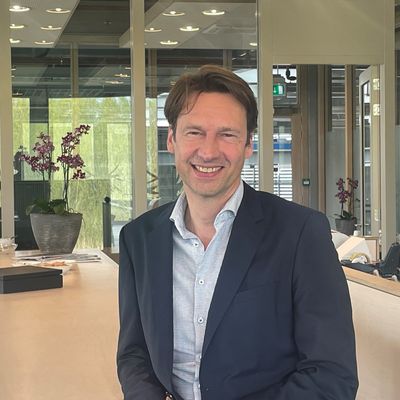
ETSA News
The latest ETSA headlines
Interview with FTN's Arthur Linssen
Introduction
As one of ETSA's most active national association members, the Dutch National Textile Service Association (FTN) continues to be a vital contributor to shaping the future of the textile services industry in Europe. Under the leadership of Arthur Linssen, FTN has brought a pragmatic and forward-looking voice to key ETSA initiatives. Following the successful national associations meeting in Helsinki and in anticipation of the 2026 ETSA Congress in Amsterdam as well as the next in-person meeting of the National Associations in 2026 which will be hosted by FTN in Rotterdam, we caught up with Arthur to hear his reflections on collaboration, challenges ahead, and the  growing momentum within the network.
growing momentum within the network.
Can you tell us a bit about FTN's mission and its role within the Dutch textile services sector? How does your work address the specific needs of the national market?
At FTN, our core mission is to support professional laundries in the Netherlands in operating cleaner, smarter, and stronger — now and in the future. We bring companies together around urgent challenges like workforce development, energy supply and sustainability regulation. By organizing regular member gatherings, we also foster active knowledge sharing — from innovative process improvements to navigating complex legislation. For example, we've built a national energy-buying collective to help laundries manage costs, and we're lobbying to ensure circular textile laws are practical for our sector. Our approach is pragmatic: less talking, more fixing. That's what makes us valuable to our members.
You've been involved with ETSA for some time now. What have been the most valuable aspects of this collaboration for you and for FTN?
The real value of ETSA is the direct line it gives us to what's coming from Brussels — and the ability to shape that together with others. For instance, we've been able to actively engage in the early discussions around CSRD and its implications for SMEs. Another pressing topic is the emerging idea of mandatory carbon emission factors for textile machines — a well-meant concept, but entirely unworkable for our sector, where machines are highly customized and used in diverse ways. ETSA gives us a platform to raise these points, back them up with practical examples, and push for workable alternatives.
The national associations meeting in Helsinki offered a lot of shared insight. What were your key takeaways from that gathering, and how do you see them informing your work moving forward?
Helsinki made one thing crystal clear: the future of our sector will be collaborative, or it won't happen at all. What inspired me most was the substantive depth and potential of several ongoing ETSA initiatives. In particular, the idea to present fire safety solutions — like thermal imaging cameras — to FTN's technology platform through an online session struck me as powerful: it links concrete innovation to strengthening our national network. Additionally, the input on grid congestion and the energy transition in Germany got me thinking about how we, as a sector, can take a more proactive stance on this issue in the Netherlands. In Germany, they are already preparing for a scenario in which companies connected to the gas network will face sharply rising costs — because they will be the last ones left to bear the infrastructure burden. Eventually, gas deliveries will stop altogether. If the electricity network is not ready by then, due to congestion, affected laundries will have no choice but to shut down.
What are the biggest opportunities for deeper cooperation between national associations right now, and how can ETSA continue to strengthen those connections in the years to come?
Let's be honest: we all struggle with the same things — finding staff, lowering energy use, and showing that textile services are essential to a sustainable economy. If we share tools (like the E-Washboard e-learning), pool knowledge (like fire safety survey data), and align our messaging (like in the Open Laundry Days), we'll move faster and smarter. ETSA plays a key role by providing structure and rhythm to that cooperation. And next year, when FTN hosts the in-person national associations meeting in Rotterdam, we'll build on that momentum with a program that's hands-on, inspiring, and full of Dutch hospitality.
ETSA: Representing textile rental companies
To find out more about our members including suppliers, national associations and research institutes click here.
ETSA: In partnership with suppliers of detergents, fabrics and machinery
To find out more about our members including textile rental companies, national associations and research institutes click here.
ETSA: Coordinating national textile service associations and working with research institutes
To find out more about our members including textile rental companies and suppliers, click here.







































